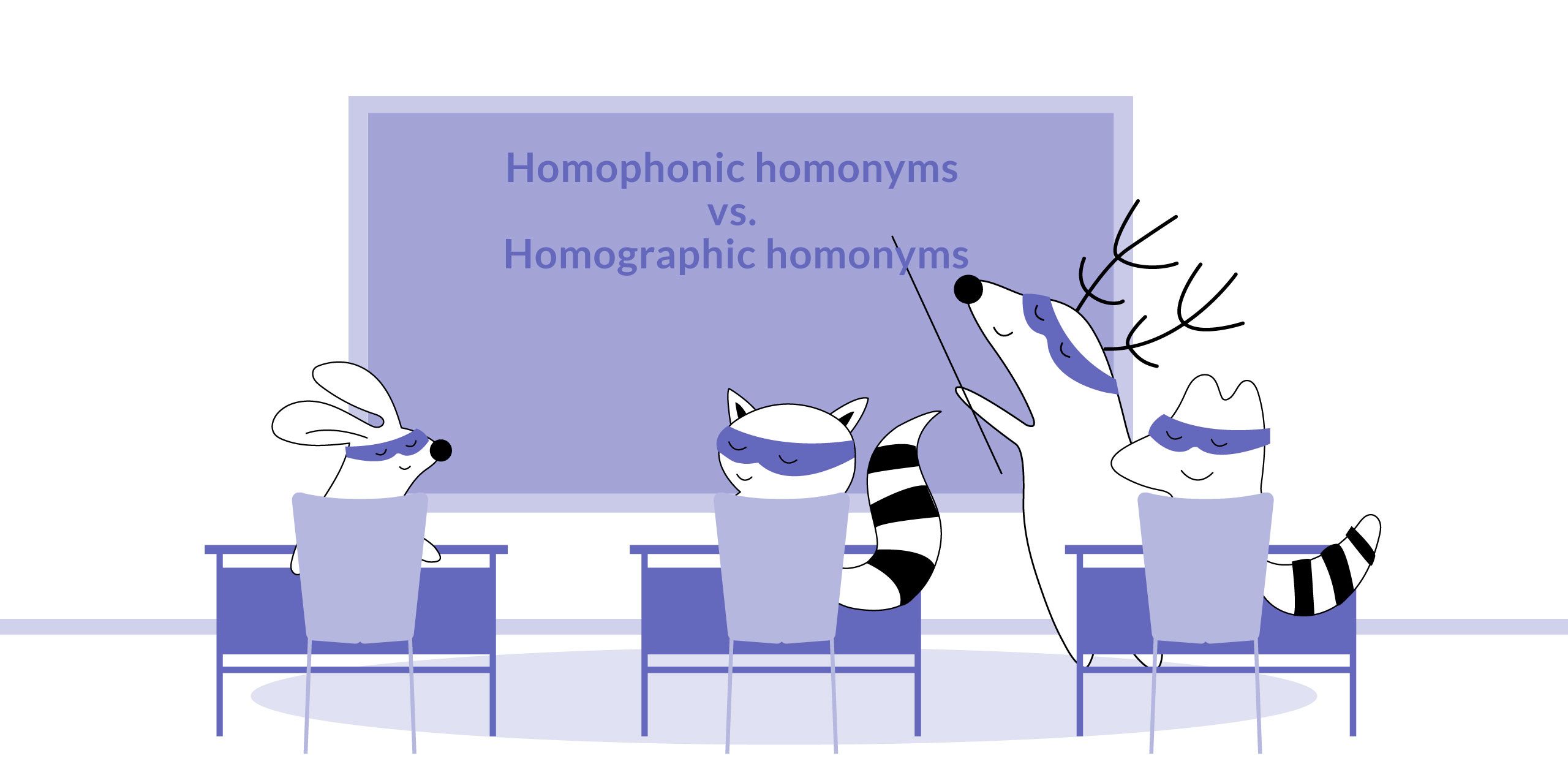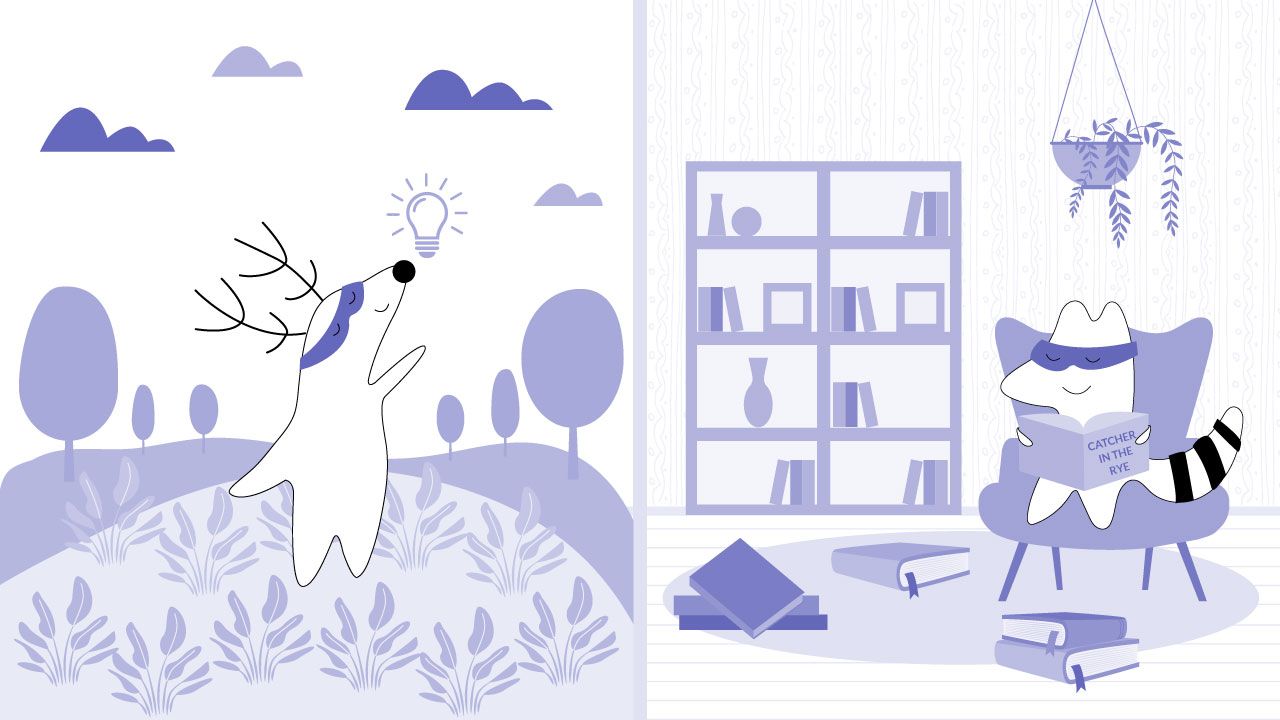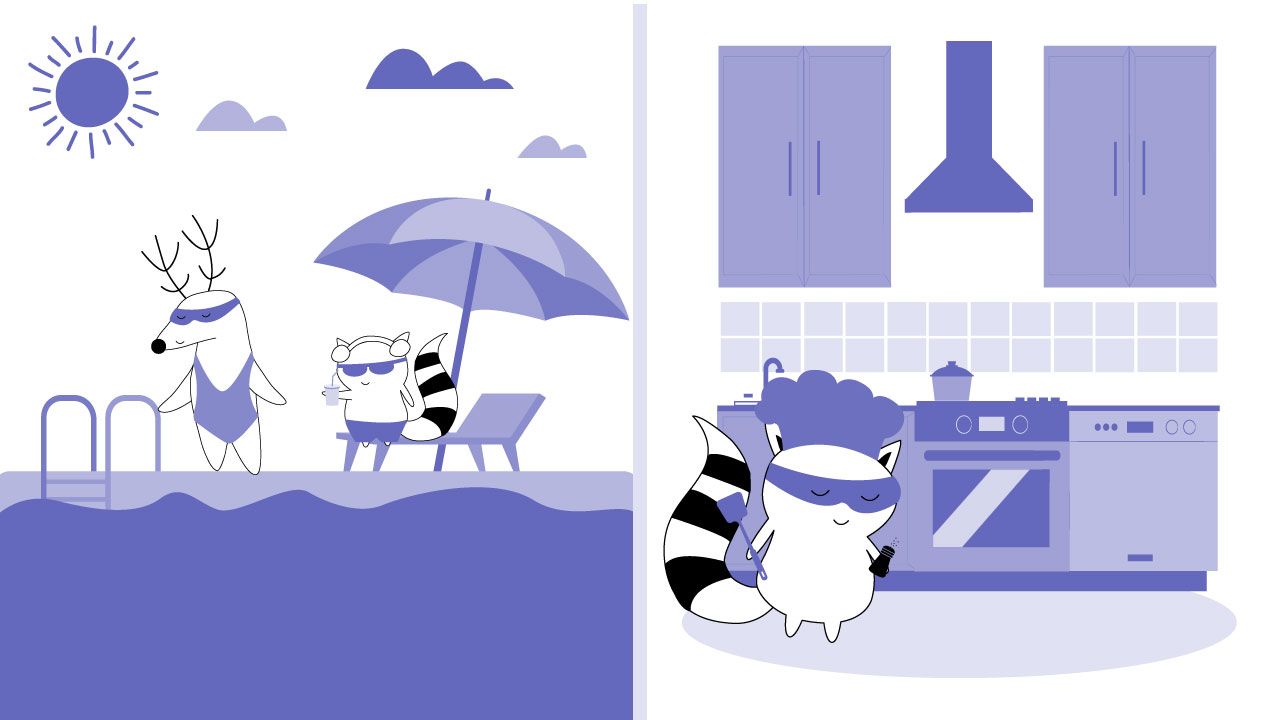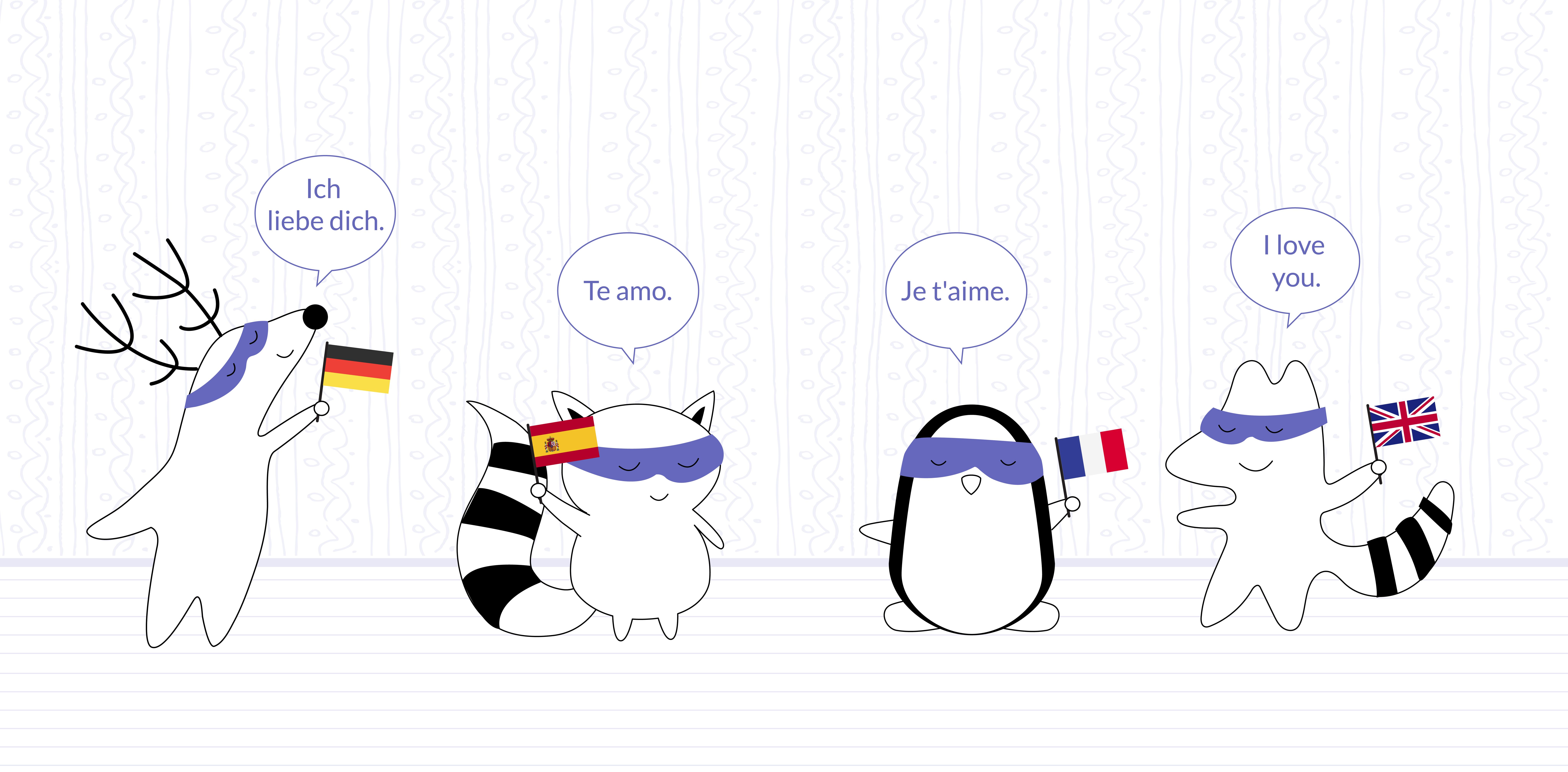
Words that are spelled the same way and may even sound alike (or vice versa) but have multiple meanings are called homonyms. This can be confusing for non-native speakers of the English language, as well as native speakers, when they encounter a word they haven't seen or heard before.
In this article, we’ll share several such words, along with explaining their meanings and giving examples in sentences, so that you can avoid any confusion in the future. Let’s dive in!
Learn English with Langster
What Do You Need to Know About Homonyms?
A homonym is a word that has the same spelling as another word but a different meaning. Homonyms can be pronounced the same way (homophones), or they can be spelled the same way but pronounced differently (homographs).
Homophonic homonyms are words that have the same pronunciation but completely different meanings while also being spelled differently. For example:
- they're – their – there
- you're – your
- it's – its
- I – eye
- here – hear
- break – brake
- flower – flour
- our – hour
So, as you can see, homophonic homonyms can create confusion and be misused quite easily. In fact, these are often the source of the most common mistakes made in the English language. Be careful with these words in your writing and speaking.
Homographic homonyms, on the other hand, are words that share the same spelling but have more than one meaning and sometimes can have different pronunciations. For example, the word “wind” can either mean “to move air” or be used in the meaning of “a gust of air.”
So, as you can see, homographic homonyms can also be tricky. In this article, we will concentrate on them – the words that look exactly the same.
Now, let's have a look at some of the most common homographic homonyms in the English language and explain their meanings, along with example sentences.
Bank
a) A bank is a financial institution where people can deposit money, take out loans, and perform other related services.
- Example: I need to go to the bank to deposit this check.
b) The word "bank" can also refer to the edge of a river or canal.
- Example: We picnicked on the bank of the river.
c) Another meaning of "bank" is the slope of the land. This is usually used in plural form, as in "banks."
- Example: After the landslide, the banks of the road were covered in debris.

Bark
a) "Bark" is the protective outer layer that covers the trunk, branches, and roots – in other words, an outer covering of a tree.
Example: This tree bark is very thick.
b) "Bark" can also refer to the sharp, loud sound that a dog or other animal makes.
Example: The dog's incessant barking is driving me crazy!
Bow
a) "Bow" can refer to bending at the waist as a gesture of respect.
Example: Please bow when you meet the King.
b) "Bow" can also refer to a weapon that shoots arrows.
Example: He used his bow and arrow to hunt for food.
Lead
a) "Lead" can refer to the front position.
Example: The team is in the first place, so they are leading the pack.
b) "Lead" can also refer to a metal.
Example: We need to get some lead for the roofing project.
c) "Lead" can also be used as a verb, meaning to show the way.
Example: The tour guide will lead us through the museum.
Nail
a) A nail is a thin, pointed piece of metal that is used to fasten things together or to serve as a decorative element.
Example: Can you please hand me a nail so I can hang this picture?
b) "Nail" can also refer to the hard, protective covering at the end of each finger and toe.
Example: I hurt my nail when I accidentally slammed it into the door. Ouch!
Novel
a) "Novel" can refer to a new and original idea.
Example: This is a novel approach to the problem.
b) "Novel" can also refer to a work of fiction.
Example: I'm reading a novel by J.D. Salinger.

Row
a) A row can be a line of things that are next to each other, often in a straight line.
Example: There was a row of trees at the edge of the property.
b) "Row" can also refer to an argument or disagreement.
Example: We had a huge row over what to watch on TV last night.
c) "Row" can also be used as a verb, meaning to propel a boat using oars.
Example: We rowed the boat out to the middle of the lake.
Season
a) The four distinct periods of the year are called seasons. These are winter, spring, summer, and fall.
Example: I can't wait for the summer season to begin!
b) "Season" can also refer to a particular time of year when certain activities are typically carried out.
Example: It's hunting season, so be careful if you're hiking in the woods.
c) "Season," when used as a verb form, means to add salt, herbs, or spices to food in order to enhance its flavor.
Example: I need to season the chicken before I bake it.

Squash
a) "Squash" can refer to the edible fruit of the squash plant. This can be either winter squash or summer squash.
Example: I love to eat roasted winter squash in the fall.
b) "Squash" can also refer to a racquet sport that is played by two people in a four-walled court.
Example: I just joined a squash league, and I'm really enjoying it.
Racket
a) A racket is a loud noise.
Example: The party next door is making such a racket that I can't concentrate on my homework.
b) "Racket" can also refer to a type of sporting equipment. For example, a tennis racket or a squash racket. (See what we did here?)
Example: I need to buy a new squash racket before my next match.
The Bottom Line

A single word that can have several meanings, depending on the context in which it is used, already sounds confusing. And, there are many words in the English language that can brag about having multiple meanings, which can make pronunciation and comprehension tricky for non-native speakers.
As such, you need to be sure to use context clues to determine the meaning of a word before using it in conversation or writing! This article features only a few examples of common words in the English language that have multiple meanings. Download our Langeser app to practice new words in the context and boost your vocabulary.









